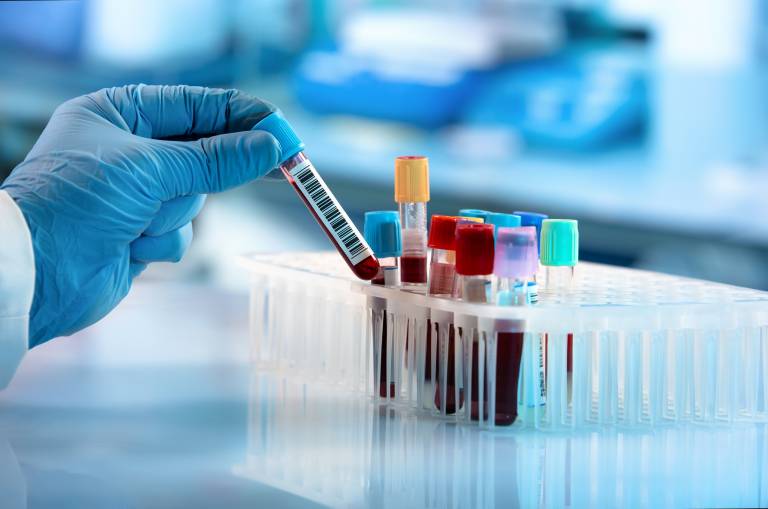New blood test could help doctors identify viral infections more easily
19 August 2021
In a collaboration between UCLH and Imperial College, researchers have developed a new test which could help doctors more easily distinguish what kind of infection a patient may have and prescribe treatments more quickly.

Currently, when patients arrive in A&E with a suspected infection, it can be very difficult to work out what kind of infection they have. In a paper published this week in The Lancet Microbe, the researchers have identified three specific genes which signal the presence of a virus because they are triggered when a virus infects the body.
The new test uses a blood sample to measure levels of the three genes and the pattern tells doctors if the patient has a viral infection. This will allow them to tailor the patient’s treatment more effectively, administer specific tests to identify the type of virus, and avoid prescribing antibiotics for patients who will not benefit from them.
In a pandemic situation, it would also allow doctors to decide earlier which patients to isolate in side rooms and provide an early indication of how many patients might be infected, well before any specific test for a new virus is available.
The new blood test has been developed using samples from the BioAID (Bioresource for Adult Infectious Diseases) database, which provides access to patient samples that are collected for the purpose of studying acute infection.
BioAID is a collaboration between the NIHR Biomedical Research Centres at UCLH, Imperial College Healthcare NHS Trust, Oxford University Hospitals and University Hospitals Birmingham. Professor Mahdad Noursadeghi at UCLH and UCL is the Chief Investigator.
It is hoped that this new test can be rapidly converted to a ‘point of care’ test, which could be conducted when patients arrive in A&E. This could help improve the care of patients arriving with suspected infection and might even be useful in primary care by GPs.
After its initial validation, the new test was validated again, during the Covid-19 pandemic. At times, the BioAID team received more than 200 new samples in a week, compared to just four or five prior to the pandemic. The study showed that the test effectively identified patients with viral infections, including the novel coronavirus.
Professor Mahdad Noursadeghi, Chief Investigator of BioAID led by UCLH said: “The data show that this test performs better than anything else that we currently use to detect an acute viral infection. The technology is moving towards making these measurements available as rapid tests in Emergency Departments, so we know more quickly when we should be thinking about viral infections in people who come to hospital with a fever. This work was made possible by NIHR Biomedical Research Centre funding used to embed research activity in our routine clinical practice. We are hugely grateful to all the patients who participated in the study.”
Senior author of the study Professor Shiranee Sriskandan, Professor of infectious diseases at Imperial College London, said: “Clearly, if we can identify whether the infection is viral or bacterial in the first instance, we can target individualised treatments more effectively to improve outcomes for patients and ensure those who will not benefit from antibiotics are not receiving them unnecessarily.”
 Close
Close

